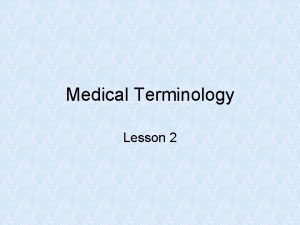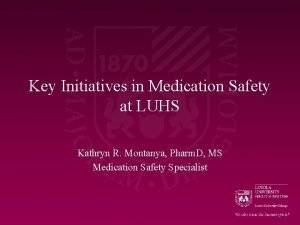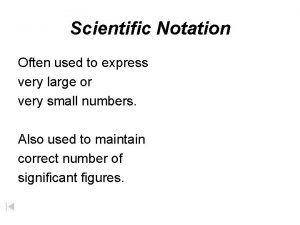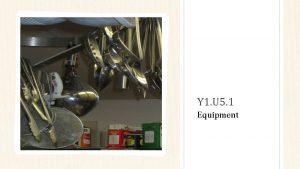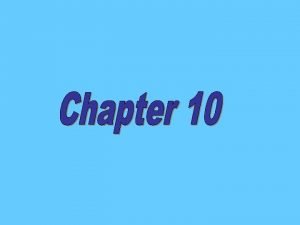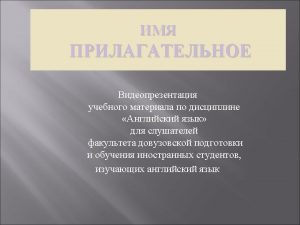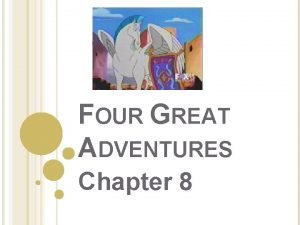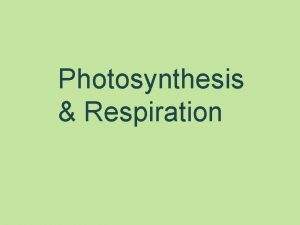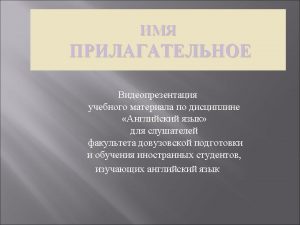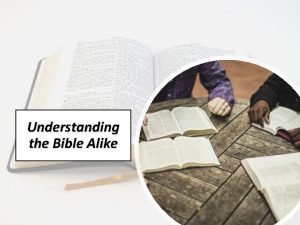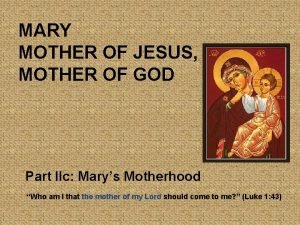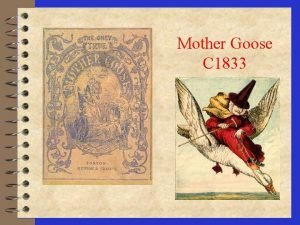11 like alike Im very like my mother














- Slides: 14







11. Сравнительный оборот с like и alike: I’m very like my mother. We are very alike + существительное: He worked like a slave. (very hard) as + существительное: He worked as a teacher. (He was a teacher. ) 12. the + прилагательное со значением множественного числа (they) употребляется для представления групп лиц либо народов: the old, the young, the blind, the sick, the dead, the living, the unemployed, the homeless, the poor, the rich, the deaf, the elderly, the English, the Dutch, the Chinese. As a rule the poor get poorer, the rich become richer. “Do the English speak English? ” asked my friend after one day in England. 13. Прилагательное + one/ones. Многие прилагательные могут быть употреблены с подобным оборотом, если они характеризуют уже упомянутый предмет: I lost my old glasses. These are new ones.

Нерегулярные формы степеней сравнения good – better – (the) best bad – worse – (the) worst little – less – (the) least many/much – more – (the) most old – older/elder – (the) oldest/eldest late – later/latter – (the) latest/last far – farther/further – (the) farthest/furthest near – nearer – (the) nearest/next

Late: later – latest (время); latter – last (позиция): I haven’t heard the latest news. Ours is the last house in the street. Old: elder – eldest (для членов одной семьи); older oldest (для людей и предметов): My father is the eldest in our family. I get on well with my elder sister. Elder не употребляется в сочетании с than. В подобном случае употребляется older: I am five years older than my brother. Far: farther/farthest и further/furthest (расстояние); further/furthest (дальнейший): You live farther than I thought. I must have a reply without further delay. Turkey is the farthest/furthest I’ve ever been. Near: nearest (расстояние); next (позиция, следующий по порядку, соседний): This is the nearest post office to our house. My uncle lives in the next house.

Сравнительные обороты с именами прилагательными употребляются: для сравнения Прилагательное в идентичных предметов: положительной степени as … as, the same … as – такой же как; twice as … as, three times as … as, half as much/many (в два раза меньше), half the size (в два раза меньше), half my age (в два раза моложе), half the weight (в два раза легче) She is as busy as a bee. Father is the same age as mother. Petrol is twice as expensive as it was a few years ago. The room is half the size. He is half my age. My trunk is half the weight of yours. Ann gets the same salary as mine. the same …as для сравнения Положительная степень различающихся предметов: not as … as, not so … as (не такой как); Italy is not so hot as Iraq. He isn’t as poor as I thought.

than – чем (than me/than I Сравнительная степень am, etc. ) the … the – чем … тем Сравнительная степень much, far, a great deal, a lot (намного, гораздо, значительно) bit, a little (немного) the more …the better than as me/him/her/them/us Your spelling is better than mine. The longer is the night, the shorter is the day. The Dniper is much longer than the Thames. This book is far more interesting than that one. Your room is a great deal better than mine. Could you speak a bit (little) more slowly? What time shall we leave? The sooner the better. What size box do you want? The bigger the better. The warmer the weather the better I feel. Tom is the same age as George. You are taller than me (I am). They have more money than us (we have). I can run as fast as him (as he can)

the most Превосходная степень This is the most interesting book. /самый/ This is a most interesting book. These are most interesting books. /крайне, весьма/ Most young people are fond of sports. Most of my friends live in Moscow. /большинство, большая часть/ ПРИМЕЧАНИЕ: Слова, которые могут усилить сравнительную степень: much, a little, a bit, slightly, far, rather, no, a lot, even, etc. The book is much more interesting than the film. The son is much richer than his father.

В английском языке необходимо разграничивать пары имен прилагательных с окончанием ing и ed: My job is boring. – I’m bored with my job. Someone is ed if something or someone is ing. Or, if something is ing, it makes you –ed. Someone is interested because something is interesting. Bill is interested in politics. He finds it interesting. Примеры подобных пар имен прилагательных: fascinating – fascinated horrifying – horrified exciting – excited terrifying – terrified amusing – amused depressing – depressed astonishing – astonished worrying – worried tiring – tired annoying – annoyed surprising – surprised disappointing – disappointed

 Sound alike and look alike medical terms
Sound alike and look alike medical terms Look alike drugs
Look alike drugs Look alike drug list
Look alike drug list Scientific notation rules
Scientific notation rules Fewfew
Fewfew It is a very shallow skillet with very short sloping sides
It is a very shallow skillet with very short sloping sides Figure 10
Figure 10 Food quantifiers exercise
Food quantifiers exercise сравнительные обороты
сравнительные обороты Solar system inner and outer planets
Solar system inner and outer planets Chapter 8 mother to mother
Chapter 8 mother to mother Mother teresa poem
Mother teresa poem Amloplast
Amloplast The bones of mammals not alike
The bones of mammals not alike Geishakid xxx
Geishakid xxx
